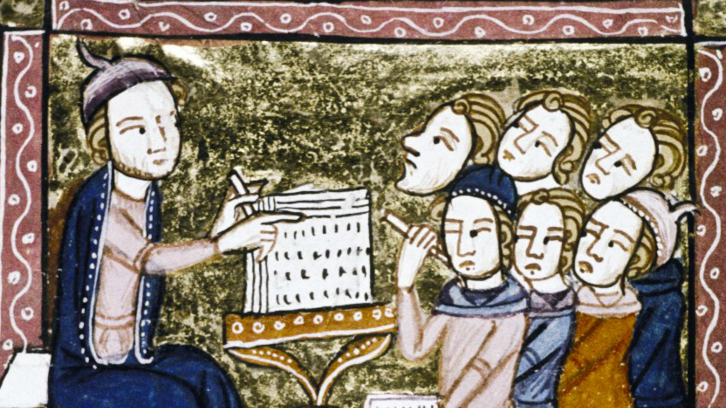New sources for the study of the relationship between philosophy and theology during the Middle Ages

The ICREA-UAB researcher Alexander Fidora unravels the complex relationship between philosophy and theology in the Middle Ages, revealing how the inaugural lectures of theology professors shaped the link between secular and religious knowledge. The analysed texts of figures such as John Wyclif offer valuable testimonies on the establishment of theology as a university discipline by the philosophical standards of the time.
The relationship between philosophy and theology was one of the most discussed topics during the medieval period and, consequently, has received a good deal of attention from modern scholars working on scholastic thought. Until now, research in this area had focused above all on the great works of medieval masters, such as the Summae or the Commentaries on the sentences.
This article, which is part of a broader investigation by its author, breaks completely new ground for the study of medieval thought and its progressive differentiation and professionalization of the different areas of knowledge – philosophical and theological – that have shaped the cultural history of Europe since the founding of the universities at the beginning of the 13th century.
More specifically, it shows how the inaugural lectures of incipient theology professors at leading European universities, such as Paris and Oxford, became privileged spaces of reflection to determine the relationship between secular and religious knowledge. These are short texts of a programmatic nature in which theologians had to explain how they approached the study of the Bible from an academic point of view, often comparing theological science with secular studies. Known as ‘biblical principles’ (principia biblica), these texts have been very little studied in the past, to the point that most of them remain unpublished.
The ICREA researcher Alexander Fidora, who has analyzed the principia of Galdericus, St Bonaventure, Stephen of Besançon, Gerard of Abbeville and Nicholas of Lyra, and recently also of John Wyclif, shows how in these texts the young theologians offer a privileged perspective, sometimes critical, other times clearly appreciative, on the work of their colleagues in the Faculty of Philosophy.
The latest of the principia studied by Fidora, that of Wyclif from 1372/3, seems to indicate that the attitude of the scholastic theologians towards philosophy was increasingly more positive, to the point that this English philosopher considered that philosophical training was essential to adequately understand and explain the Bible. Therefore, these lectures can be considered unique witnesses of how theology established itself as a university discipline in permanent dialogue with the philosophical standards of the time.
Alexander Fidora
Department of Sciences of Antiquity and the Middle Ages
Catalan Institution for Research and Advanced Studies (ICREA)
Universitat Autònoma de Barcelona
References
Fidora, Alexander (2023). John Wyclif’s Principium Biblicum Revisited: Philosophy as a Necessary Condition for the Study of Theology. Vivarium 61 (3-4): 288-317. DOI: https://doi.org/10.1163/15685349-06103002

